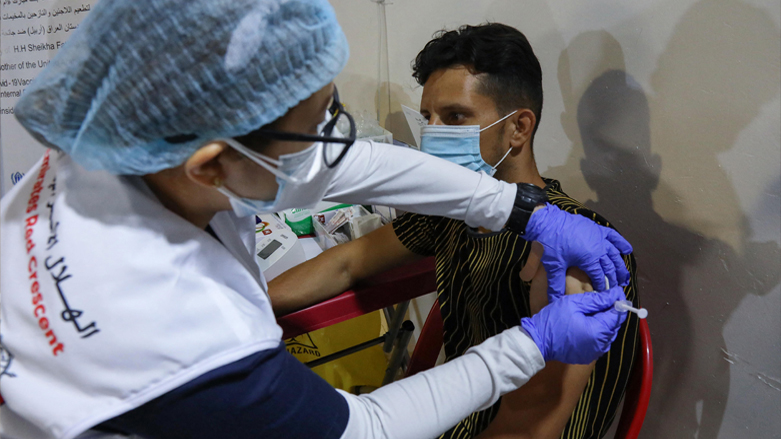UAE Red Crescent rolls out second dose of COVID vaccine to refugees in Kurdistan Region

ERBIL (Kurdistan 24) – The United Arab Emirates Red Crescent has begun administering the second dose of COVID-19 vaccines to displaced Iraqis and refugees in the Kurdistan Region.
The Gulf aid organization launched the coronavirus vaccination program for the displaced population in the Kurdistan Region in late May, providing 15,000 doses of the Chinese Sinopharm vaccine to camps in the Kurdish capital Erbil.
Rollout of the second dose began on June 20, the UAE Consulate General in Erbil told Kurdistan 24 on Friday, and covers the same camps, Qushtapa, Debaga, and Hassan Sham.
The World Health Organization recommends a 3-4 week interval between coronavirus vaccines where two jabs are recommended.
Qushtapa and Debaga camps in the southern Kurdish province of Erbil were the first two sites where Syrian Kurdish and Iraqi IDPs began to receive the first dose of the Sinopharm vaccine in early May.
Many Iraqi IDPs who fled to the region after the rise of ISIS in 2014 reside in Qushtapa in southeastern Erbil, while the Debaga camp hosts refugees from the part of northeast Syria that Kurds call Rojava.
It is not yet clear whether the Red Crescent will continue the vaccination drive until all 927,000 displaced people are vaccinated.
The Emirates’ contribution is done in coordination with the Kurdistan Region’s Barzani Charity Foundation, which is in charge of camp management in the capital.
The Kurdish aid group also shares the health profile of the displaced population with its Emirate counterpart, Soran Khalaf, BCF head of Media and Communications, previously told Kurdistan 24.
